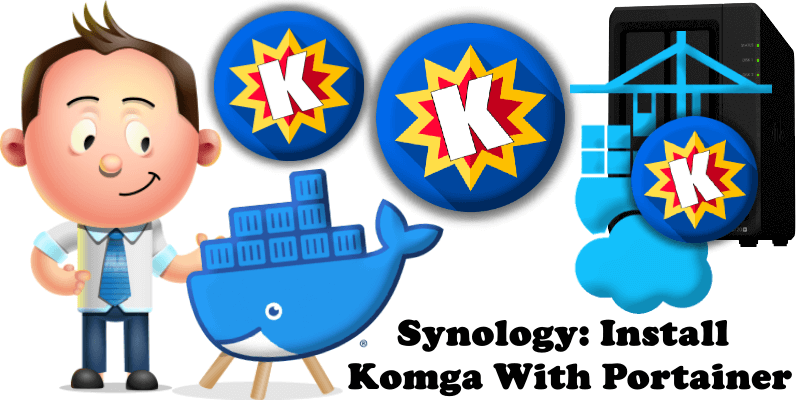
My previous guide for Komga involved the use of Task Scheduler. Today I’m offering a recommended and excellent alternative for installing the latest Komga version via Portainer. Komga is a free and open source comics/mangas server. You can easily browse libraries, series and books via a responsive web UI that works on desktops, tablets and phones. Komga supports the following file types: Comic book archives: CBZ and CBR (except RAR5 and solid archives) – Comic books in EPUB format – PDF files. In this step by step guide I will show you how to install Komga on your Synology NAS using Docker & Portainer.
This guide works perfectly with the latest Komga v1.24.1 release.
STEP 1
Please Support My work by Making a Donation.
STEP 2
Install Portainer using my step by step guide. If you already have Portainer installed on your Synology NAS, skip this STEP. Attention: Make sure you have installed the latest Portainer version.
STEP 3
Go to File Station and open the docker folder. Inside the docker folder, create one new folder and name it komga. Follow the instructions in the image below.
Note: Be careful to enter only lowercase, not uppercase letters.
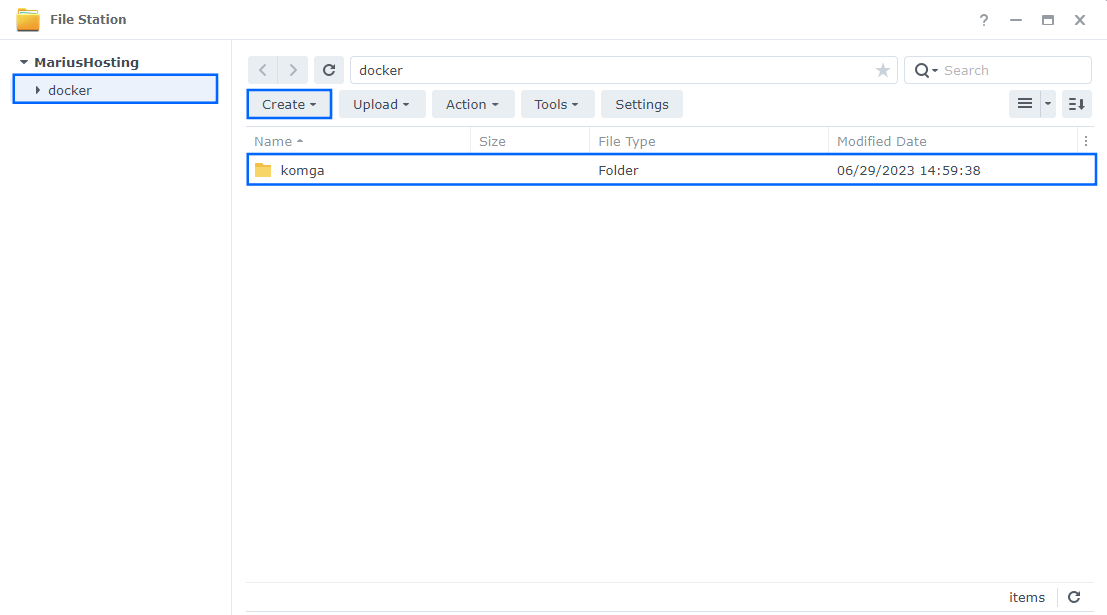
STEP 4
Now create two new folders inside the komga folder that you created at STEP 3 and name them config and data. Follow the instructions in the image below.
Note: Be careful to enter only lowercase, not uppercase letters.
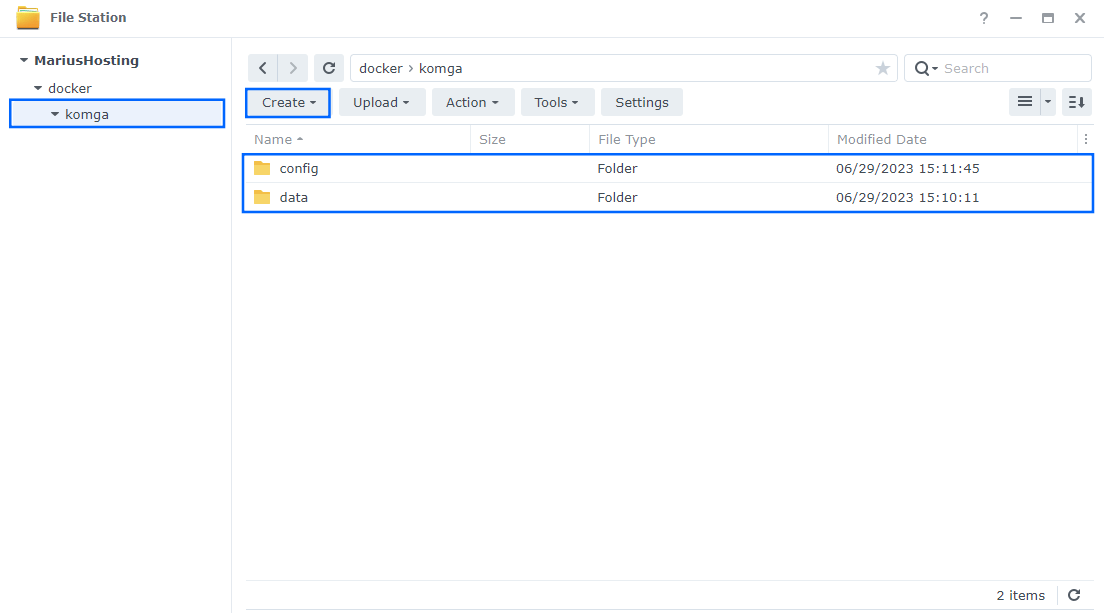
STEP 5
Populate the data folder you have previously created at STEP 4 with your comics, ePUB, PDF, CBR, CBZ. Follow the instructions in the image below.
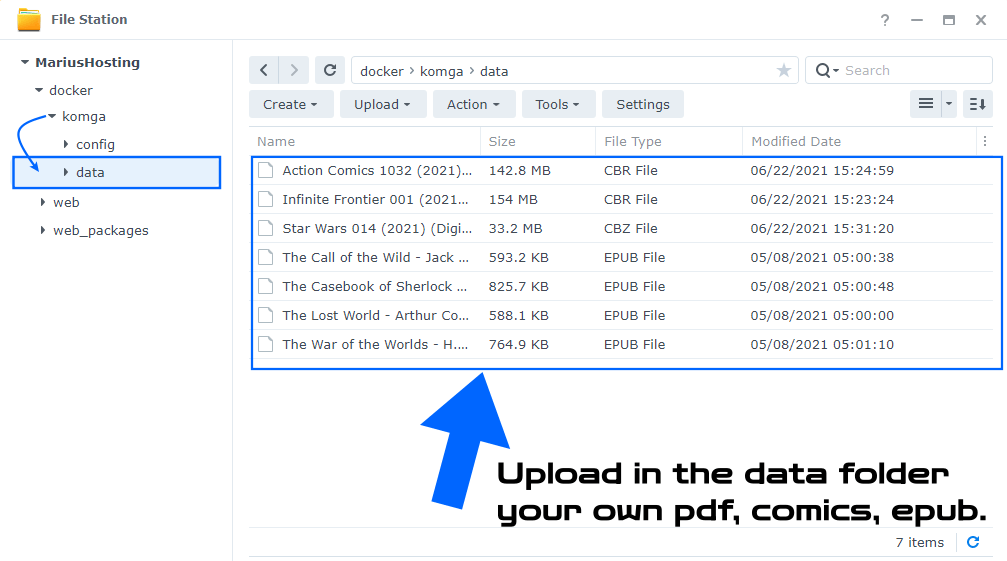
STEP 6
Log into Portainer using your username and password. On the left sidebar in Portainer, click on Home then Live connect. Follow the instructions in the image below.

On the left sidebar in Portainer, click on Stacks then + Add stack. Follow the instructions in the image below.

STEP 7
In the Name field type in komga. Follow the instructions in the image below.
services:
komga:
container_name: Komga
image: gotson/komga
mem_limit: 4g
cpu_shares: 768
security_opt:
- no-new-privileges:true
user: 1026:100
environment:
TZ: Europe/Bucharest
ports:
- 8341:25600
volumes:
- /volume1/docker/komga/config:/config:rw
- /volume1/docker/komga/data:/data:rw
restart: on-failure:5
Note: Before you paste the code above in the Web editor area below, change the value numbers for user with your own UID and GID values. (Follow my step by step guide on how to do this.) 1026 is my personal UID value and 100 is my personal GID value. You have to type in your own values.
Note: Before you paste the code above in the Web editor area below, change the value for TZ. (Select your current Time Zone from this list.)
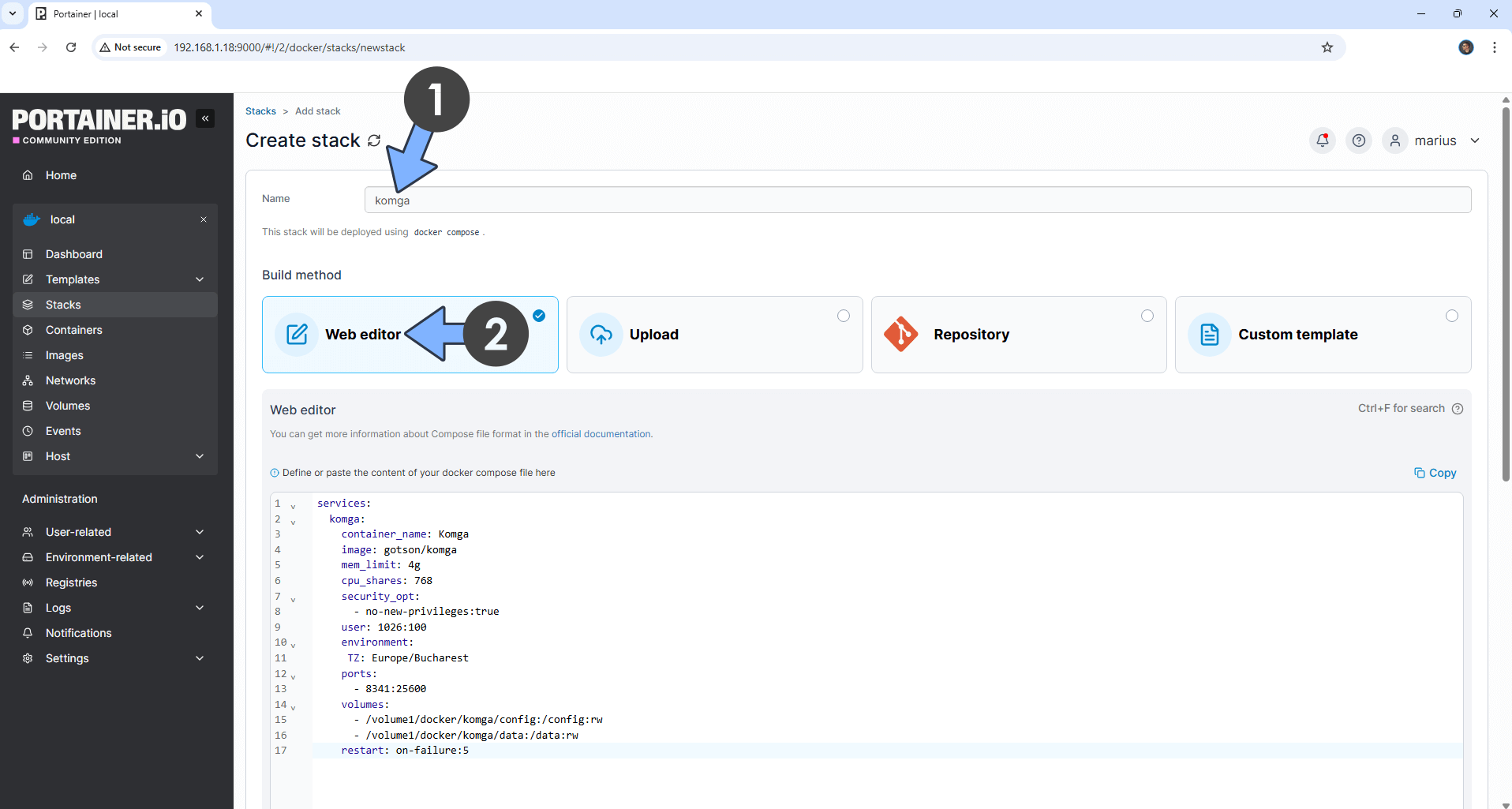
STEP 8
Scroll down on the page until you see a button named Deploy the stack. Click on it. Follow the instructions in the image below. The installation process can take up to a few minutes. It will depend on your Internet speed connection.
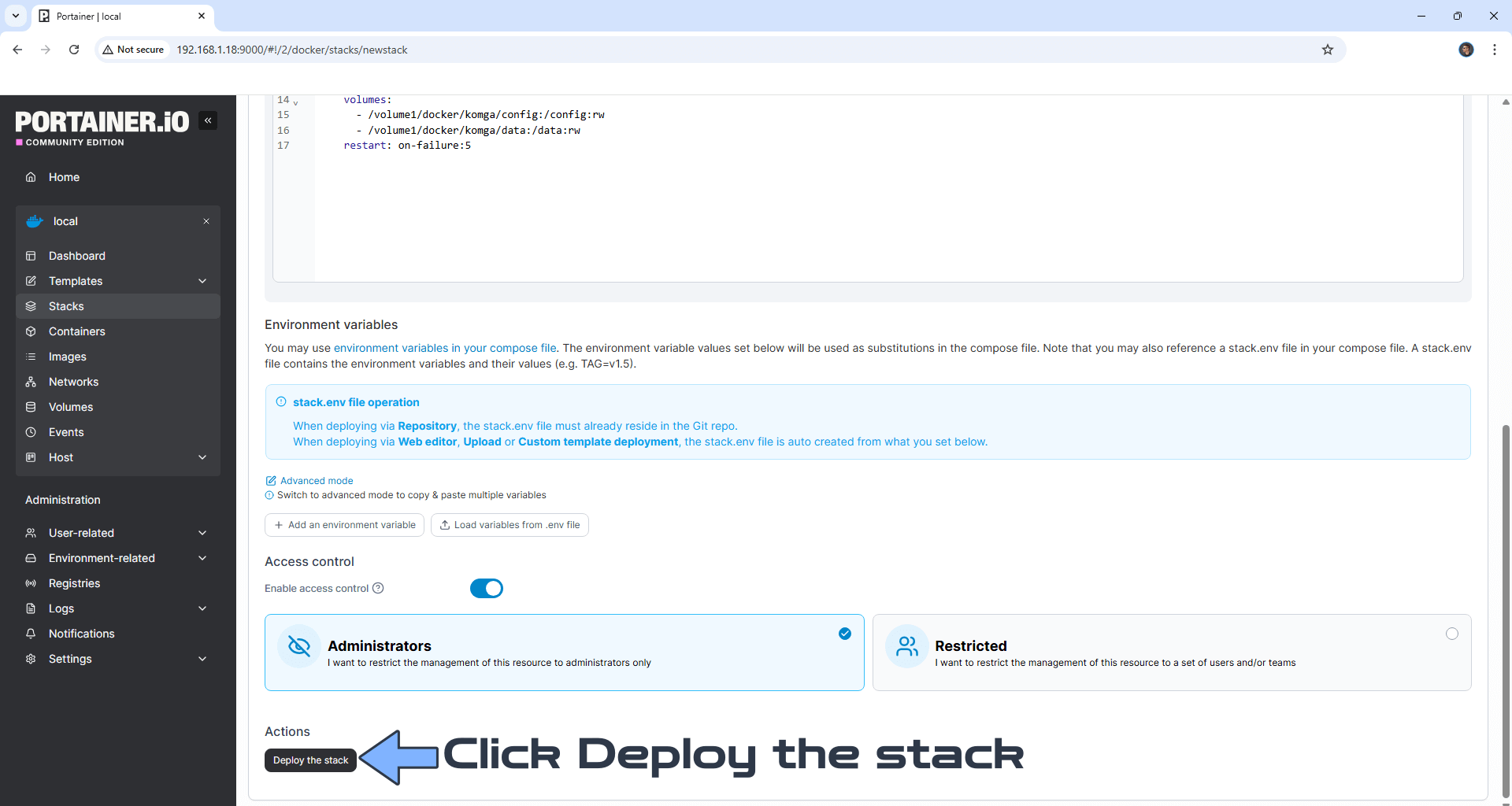
STEP 9
If everything goes right, you will see the following message at the top right of your screen: “Success Stack successfully deployed“.

STEP 10
🟢Please Support My work by Making a Donation. Almost 99,9% of the people that install something using my guides forget to support my work, or just ignore STEP 1. I’ve been very honest about this aspect of my work since the beginning: I don’t run any ADS, I don’t require subscriptions, paid or otherwise, I don’t collect IPs, emails, and I don’t have any referral links from Amazon or other merchants. I also don’t have any POP-UPs or COOKIES. I have repeatedly been told over the years how much I have contributed to the community. It’s something I love doing and have been honest about my passion since the beginning. But I also Need The Community to Support me Back to be able to continue doing this work.
STEP 11
The installation process can take up to a few seconds/minutes. It will depend on your Internet speed connection. Now open your browser and type in http://Synology-ip-address:8341 Choose an Email, a Password, the Language and Theme, then click CREATE USER ACCOUNT. Follow the instructions in the image below.
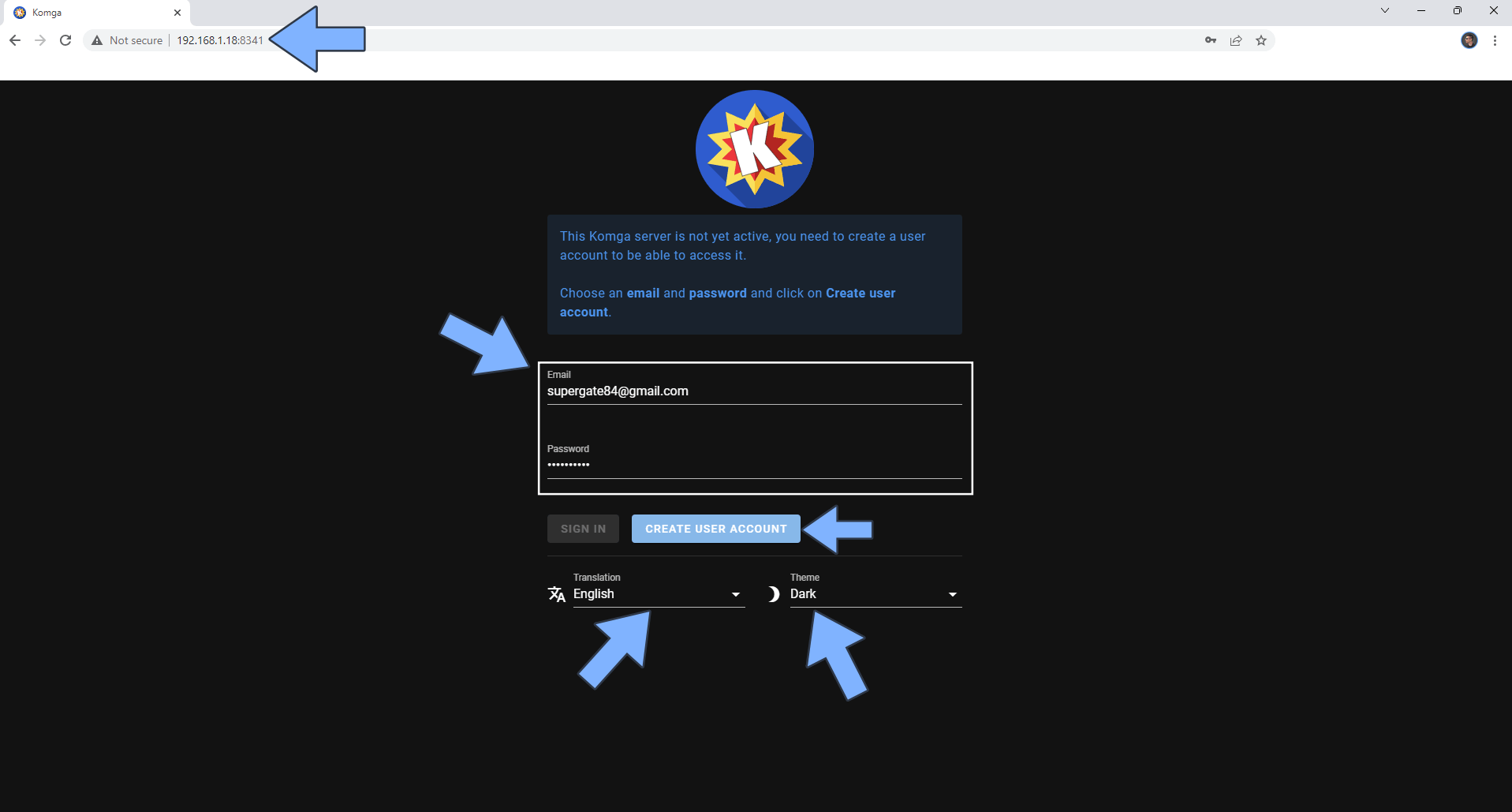
STEP 12
Click on the ADD LIBRARY button. Follow the instructions in the image below.
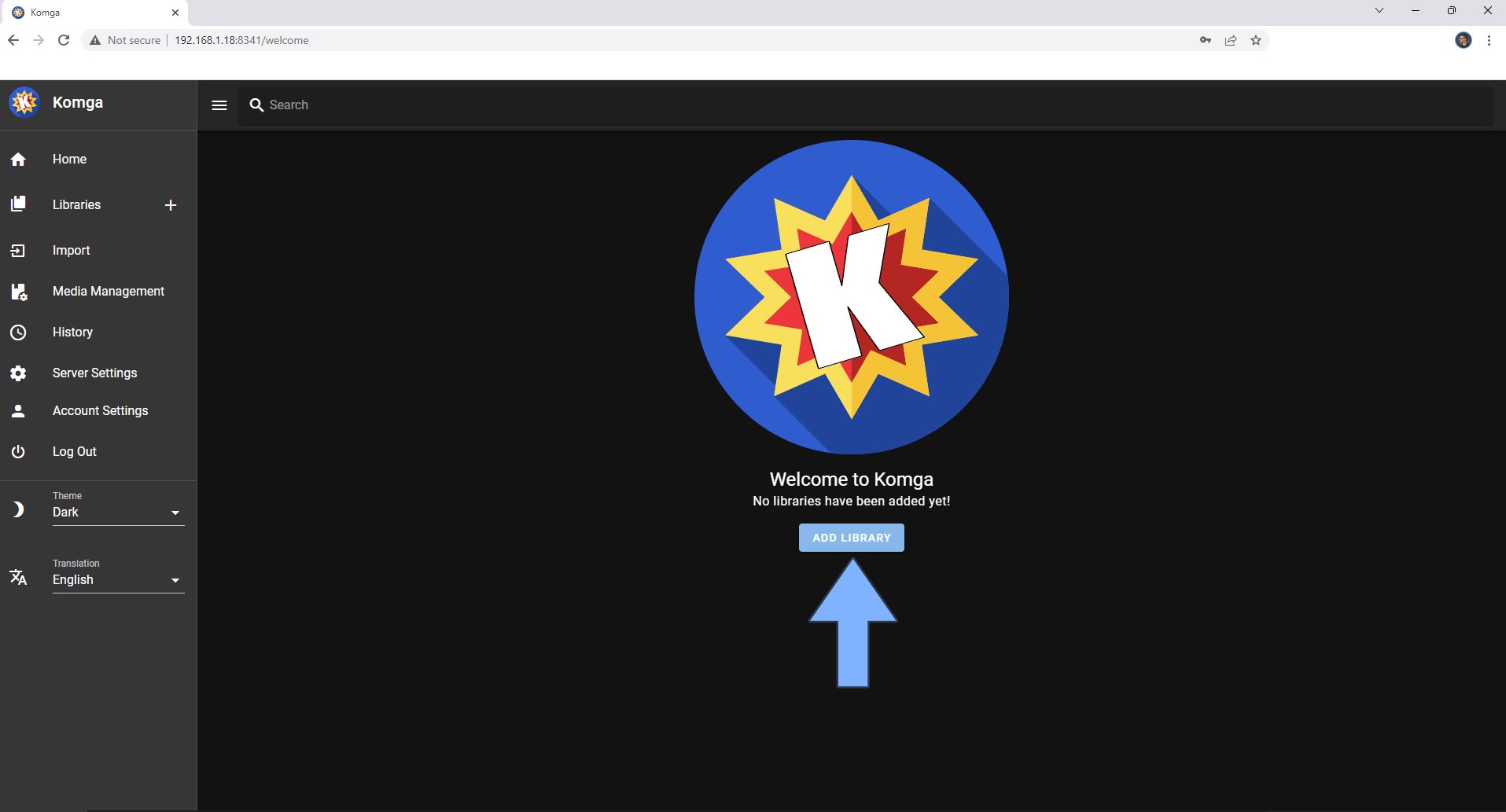
STEP 13
Choose a name for your Library. On the Root folder area type in /data then click NEXT. Follow the instructions in the image below.
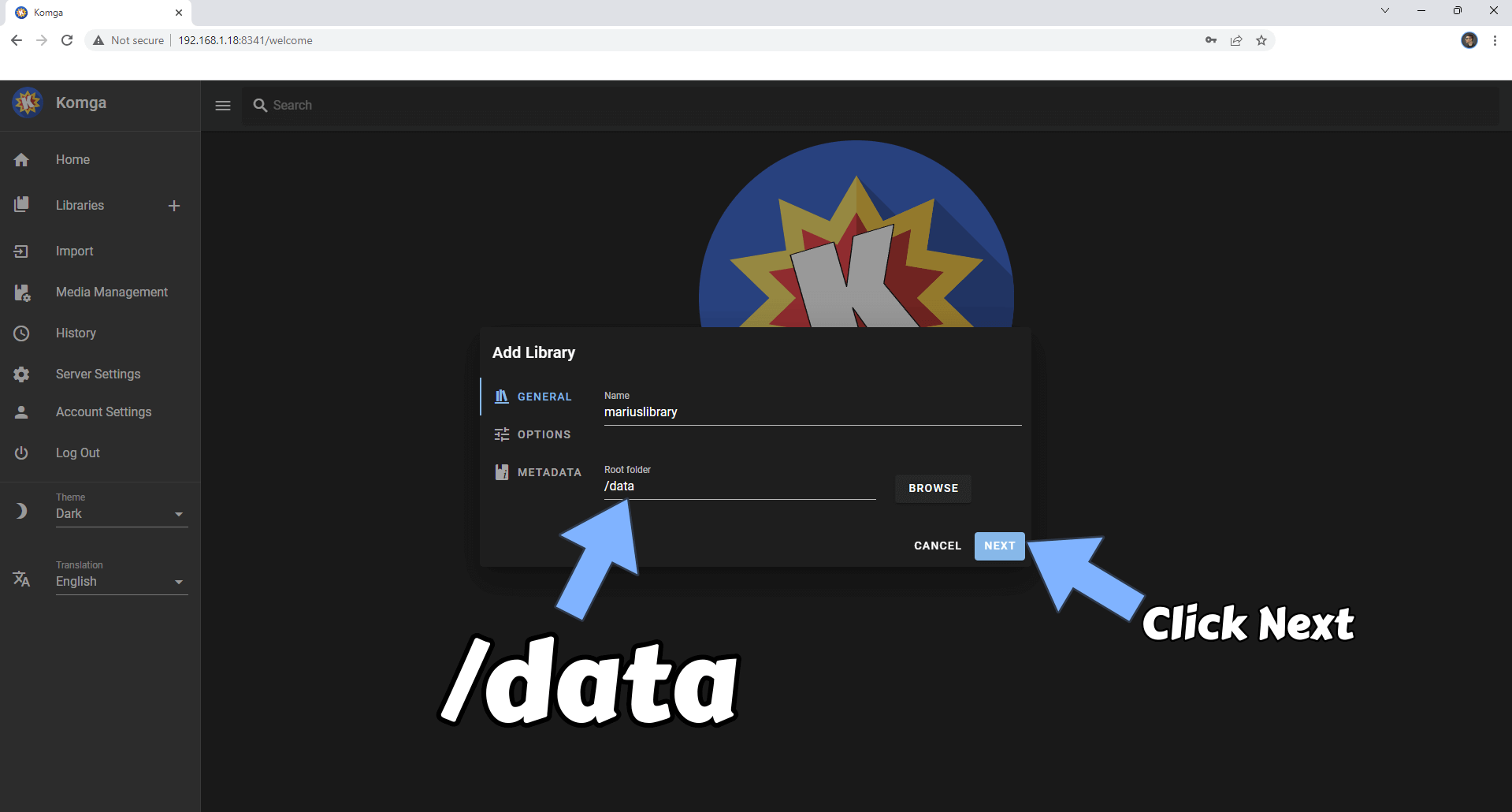
STEP 14
Click Next. Follow the instructions in the image below.
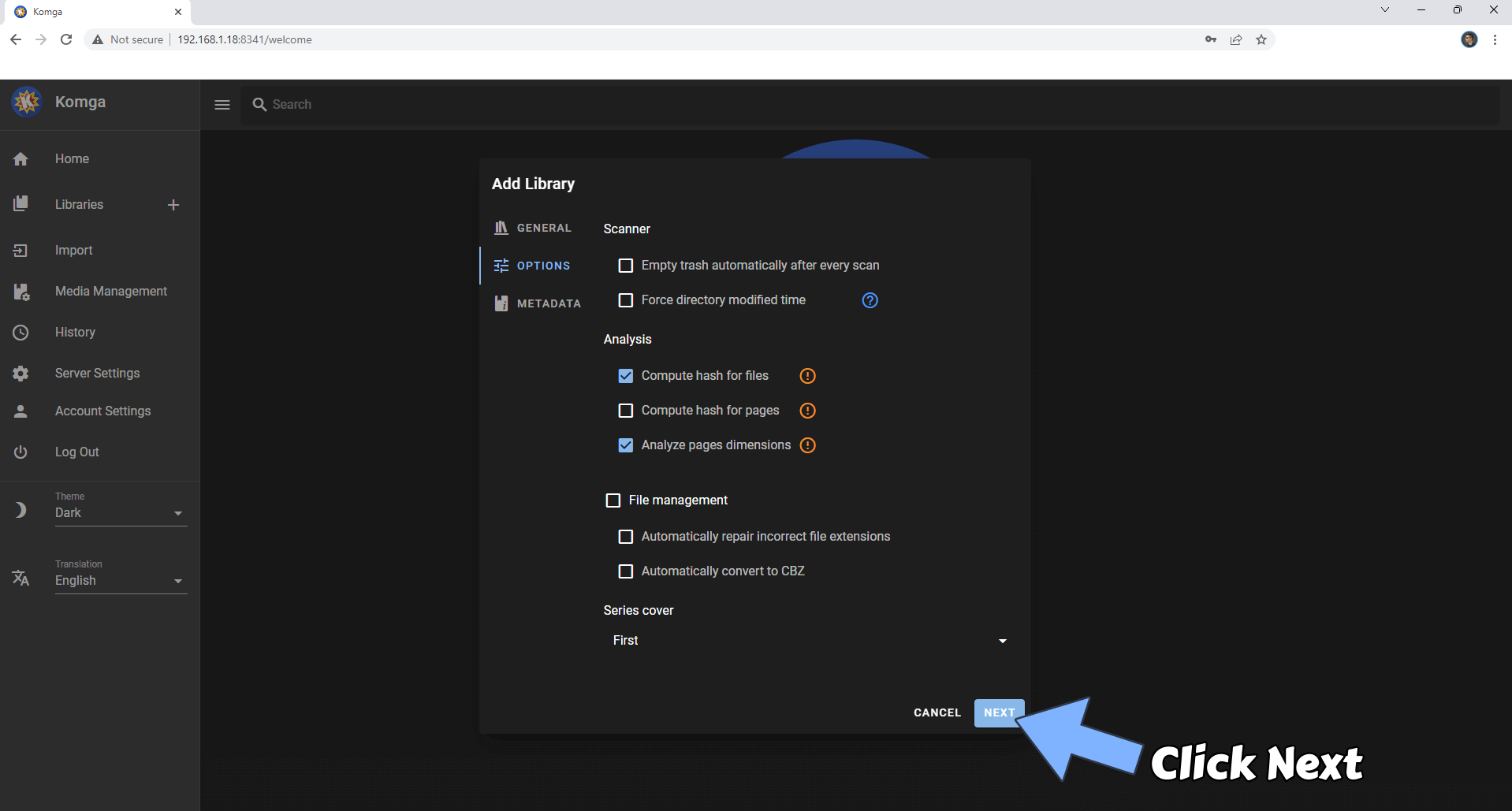
STEP 15
Click ADD. Follow the instructions in the image below.
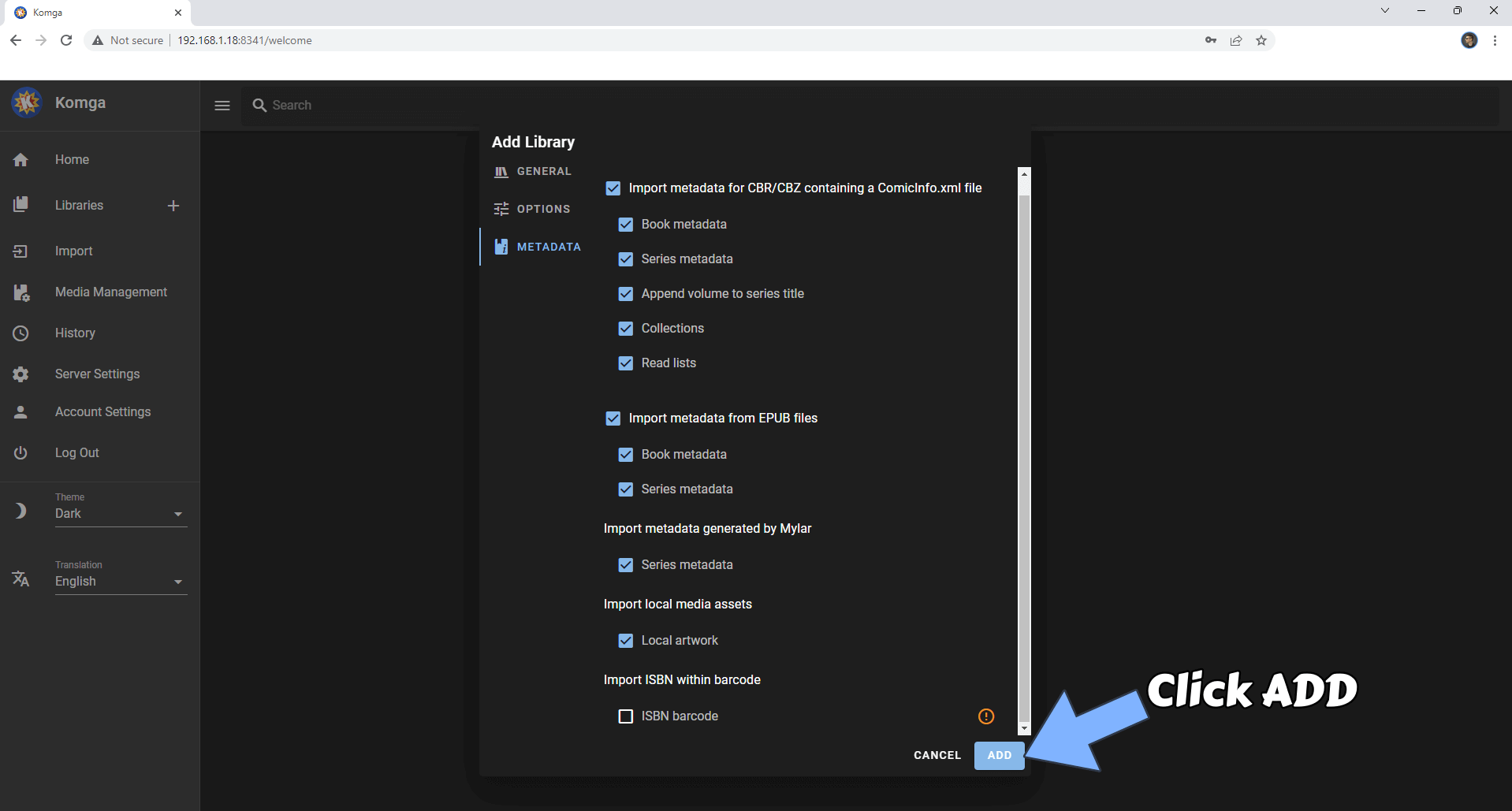
STEP 16
Enjoy your Library with Komga! If you have a large library you will need to wait a few minutes before the files become visible in your Komga Home. The files need to be processed.
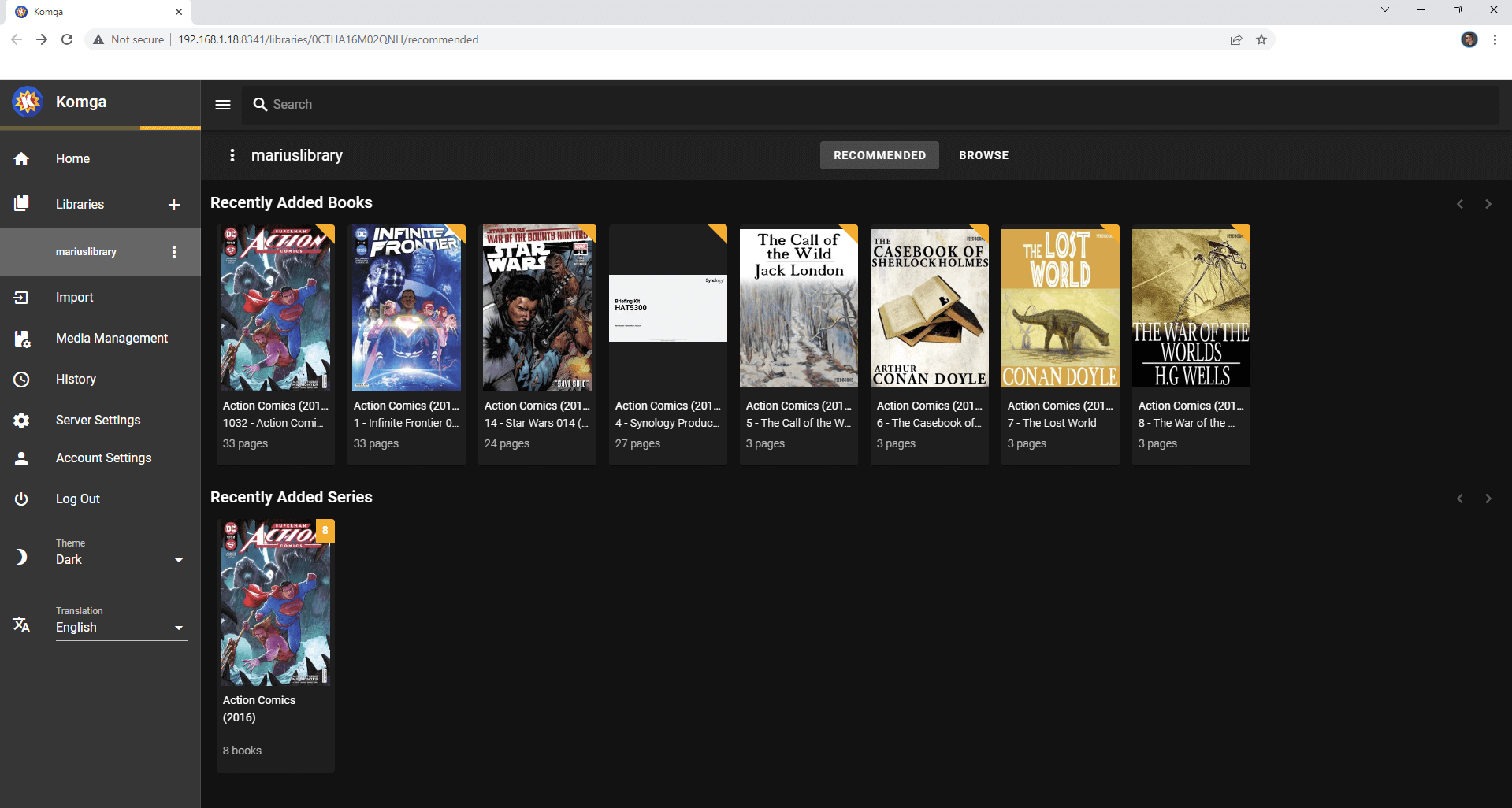
Start reading your comics!
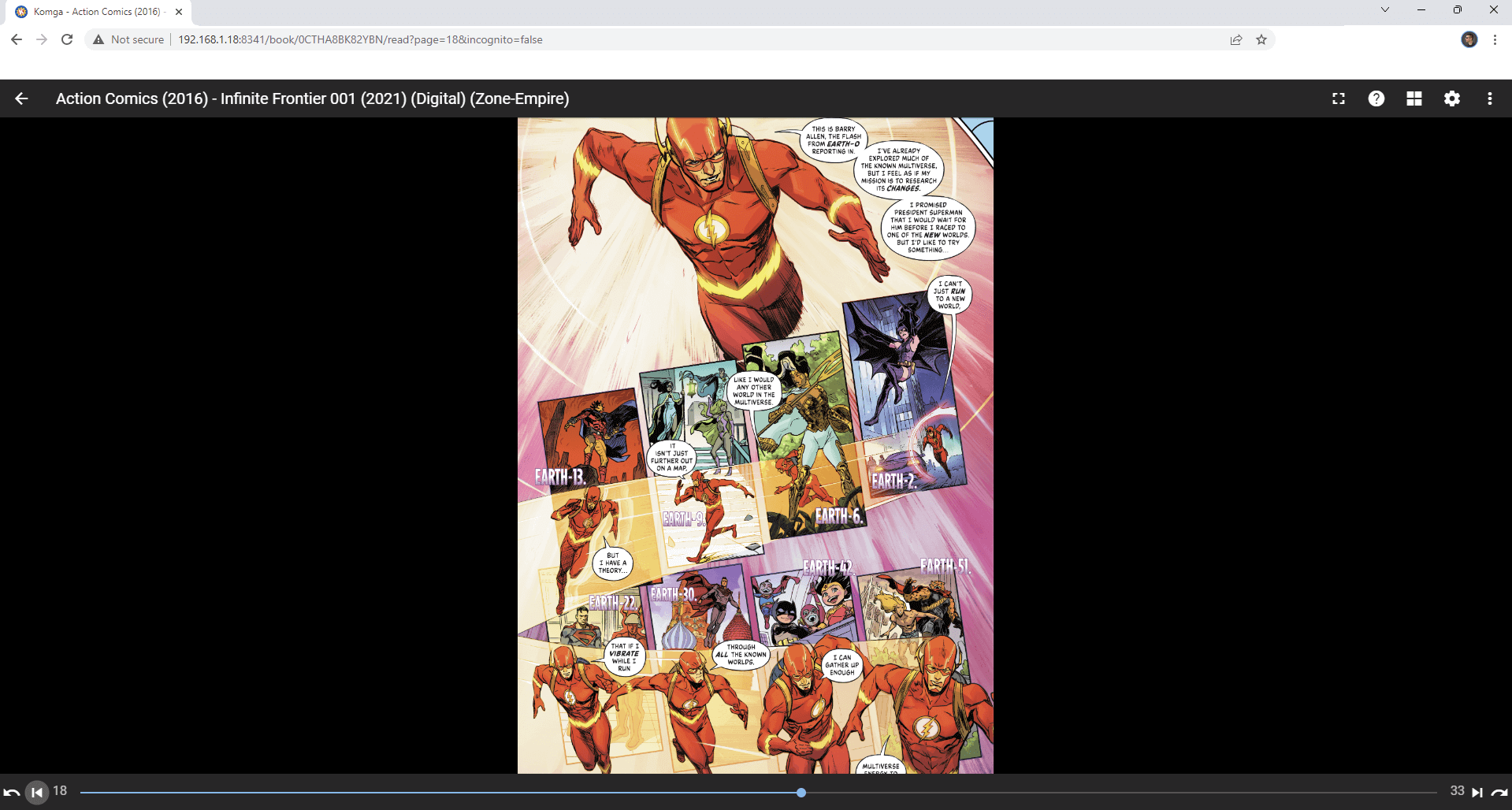
Enjoy Komga!
If you encounter issues by using this container, make sure to check out the Common Docker issues article.
Note: If you want to run the Komga container over HTTPS, check How to Run Docker Containers Over HTTPS. In order to make Komga work via HTTPS, it’s mandatory to activate WebSocket.
Note: Can I run Docker on my Synology NAS? See the supported models.
Note: How to Back Up Docker Containers on your Synology NAS.
Note: Find out how to update the Komga container with the latest image.
Note: How to Add USB Support on DSM 7.2.
Note: How to Free Disk Space on Your NAS if You Run Docker.
Note: How to Schedule Start & Stop For Docker Containers.
Note: How to Activate Email Notifications.
Note: How to Add Access Control Profile on Your NAS.
Note: How to Change Docker Containers Restart Policy.
Note: How to Use Docker Containers With VPN.
Note: Convert Docker Run Into Docker Compose.
Note: How to Clean Docker.
Note: How to Clean Docker Automatically.
Note: Best Practices When Using Docker and DDNS.
Note: Some Docker Containers Need WebSocket.
Note: Find out the Best NAS Models For Docker.
Note: Activate Gmail SMTP For Docker Containers.
This post was updated on Monday / February 9th, 2026 at 3:26 AM
